Photo: Rob Verhorst / Contributor
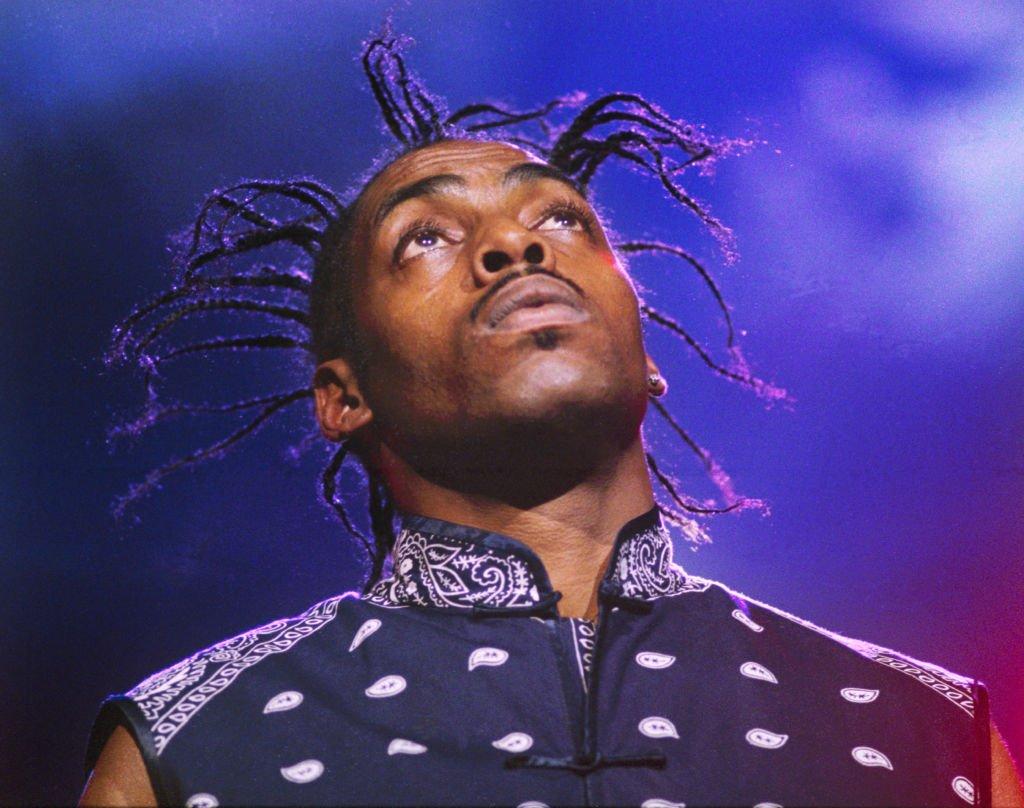
list
Remembering Coolio: 5 Standout Tracks From The Late Rapper’s Discography
With a career spanning three decades, Coolio will be remembered for his upbeat ‘90s jams, sense of humor, and lyricism. While the road to the top was rocky, and Coolio developed a unique sensibility and canon of hits.
GRAMMY-winning rapper Coolio passed away on Sept. 28, at the age of 59. The rapper is best known for his 1995 smash hit "Gangsta’s Paradise," which became the top-selling single of the year thanks to its melodic sample, energetic flow and catchy hook. He is survived by his six children.
Born Artis Leon Ivey Jr., Coolio spent his early years in Monessen, Pennsylvania before relocating with his family to Compton, California — the birthplace of West Coast rap. Coolio's parents introduced him to classic R&B hits from their youth, and those songs became inspiration for his future sound. "My mom and stepfather was listening to Miles Davis, Stevie Wonder, the Supremes, the Dramatics, Marvin Gaye, Curtis Mayfield," Coolio told Rolling Stone in 1995. "Back in those days, people didn’t have big album collections, at least not in the ghetto, but we did."
Before making a full-time commitment to music, the "Fantastic Voyage" rapper worked a range of jobs, including airport security; he credited his work as a volunteer firefighter with helping him kick an addiction to crack cocaine. "I wasn’t looking for a career; I was looking for a way to clean up a way to escape the drug thing," he told the LA Times in 1994. "It was going to kill me and I knew I had to stop. In firefighting, training was [the] discipline I needed. We ran every day. I wasn’t drinking or smoking or doing the stuff I usually did."
With his life back on track, the rapper was free to focus on his music and never looked back. After the release of his debut album, It Takes A Thief, in 1994, Coolio enjoyed immense success on global music charts, and wins at the GRAMMYs, American Music Awards and MTV Music Awards before his career began to simmer down in the 2000s.
But Coolio did not stop. In 2008, he created a cooking reality show called "Cookin’ With Coolio" and became a spokesperson for Environmental Justice and Climate Change, helping to start a dialogue with students at historically Black colleges and universities (HBCUs) about global warming.
As news of his passing made the rounds on social media, fans and peers alike paid tribute to the late rapper, including fellow West Coast rap legend Ice Cube. "This is sad news," he tweeted. "I witness first hand this man’s grind to the top of the industry. Rest In Peace, @Coolio."
Dangerous Minds actor Michelle Pfeiffer took to Instagram to pay her respects. "I remember him being nothing but gracious. 30 years later I still get chills when I hear ["Gangsta’s Paradise"] Sending love and light to his family. Rest in Power, Artis Leon Ivey Jr. ❤️."
In celebration of his life and career, listen to and learn about five standout tracks from the late GRAMMY-winning rapper, who has become a part of pop culture history.
"Gangsta’s Paradise"
Coolio co-wrote this classic hip-hop track for the soundtrack of the 1995 high school drama, Dangerous Minds, starring Michelle Pfeiffer. Featuring a Stevie Wonder sample ("Pastime Paradise") and a haunting yet catchy chorus sung to perfection by Larry "LV" Sanders, the cinematic theme song erupted on the charts, making Coolio a household name across the globe. (According to the New York Times, Wonder approved the use of the sample with a major stipulation: The song had to be profanity-free. This simple caveat may have inadvertently set the song up for more widespread success.)
"Gangsta's Paradise" set Coolio up for his first nomination at the 38th GRAMMY Awards. The track was only the second rap song to get nominated for Record Of The Year, and won Coolio his first golden gramophone. The rapper was nominated a total of six times.
Sanders played a pivotal role in the song’s success, according to Rolling Stones’ oral history of the classic track. The singer received the song before Coolio was involved and changed the name from "Pastime Paradise" to "Gangsta’s Paradise." Sanders recorded the singing portion of the track and chose to bring Coolio in to write and perform the rap verses. In March of 1996, Weird Al Yankovic released a parody of the song called "Amish Paradise," without Coolio’s permission (artist approval is not legally required for a parody song ). Coolio dissed Yankovic and spoke out against the song, though the pair eventually reconciled and Coolio admitted that his ego led to his outburst.
Yesterday, music writer Dan Ozzi posted an excerpt from an interview with the rapper, in which he addressed the beef and his growth since the incident. "Let me say this: I apologized to Weird Al a long time ago and I was wrong," Coolio said. "Y'all remember that, everybody out there who reads this s—. Real men and real people should be able to admit when they're wrong and I was wrong."
"Fantastic Voyage"
Released on his debut studio album, It Takes a Thief, the song features a pulsating beat and an ever-catchy chorus "Come along and ride on a fantastic voyage" pulled from the heavily sampled 1980 R&B-funk song of the same name by the group Lakeside.
The song was a hit and the album was well-received by hip-hop fans and a sign of good things to come for Coolio’s career.
"Ooh La La"
Like many ‘90s rappers, Coolio utilized samples from artists of the ‘70s and ‘80s but he infused these memorable sounds with his own flavor. "Ooh La La" — the second single from the rapper’s third album, 1997's My Soul — features a sample of "Pull Up to The Bumper" by Grace Jones. The result is a sonic delight designed for cruising or a throwback party jam.
While the single did not achieve the same success as his other smash hits, the lesser-known summertime bop holds its own and showcases the rapper's breezier side.
"Aw, Here It Goes"
In the ‘90s, at the height of his fame, Coolio brought his signature swagger and flow to the theme for "Kenan and Kel," a beloved Nickelodeon sitcom starring "SNL’s" Kenan Thompson and Good Burger’s Kel Mitchell. The duo paid tribute to the late rapper on their Instagram pages: Thompson offered his condolences with a few slides on his Instagram story, while Mitchell shared a heartfelt message and memory.
"Rest in Heaven @coolio ! We recently spoke a few months ago laughing and having such a good time. So many great memories with you, bro!," Mitchell wrote. "That time first meeting you on 'All That' cracking up in a Good Burger Sketch then you bringing me on stage after your performance to freestyle. Then later creating the legendary 'Kenan and Kel' theme song for @kenanthompson and I. You did an interview the day of filming the intro on Big Boys Neighborhood and all of Los Angeles was at Universal Studios city walk it was a party!!"
"1, 2, 3, 4 (Sumpin' New)"
Coolio had major skills on the mic and beyond, but he also had a great ear for danceable tracks that could jumpstart any dancefloor. The upbeat 1996 single, "Sumpin’ New" featured three different samples — "Thighs High (Grip Your Hips and Move)" by jazz trumpeter Tom Browne; a vocal sample from "Wikka Wrap" by the Evasions, and its main riff comes from "Good Times" by Chic.
Remembering Betty Davis: 5 Essential Tracks By The Singer/Songwriter, Fashion Icon & Funk Pioneer
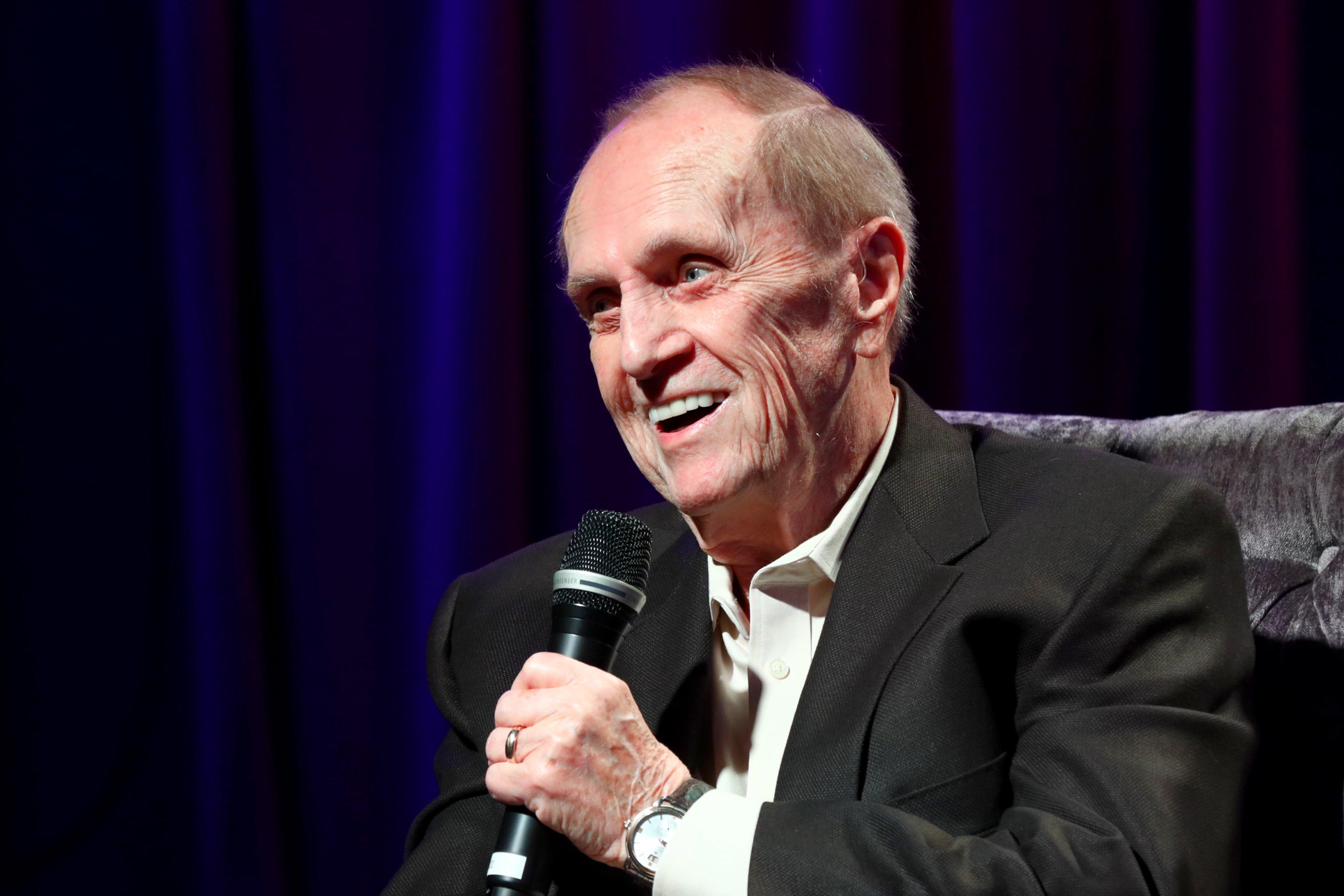
Photo: Rebecca Sapp/WireImage
news
Remembering Bob Newhart, The Comic Who Made GRAMMY History With His Debut Album
The legendary comic, whose work onstage and on screen spanned multiple generations, passed away at age 94 on July 18.
Bob Newhart, one of the most celebrated comedians of his generation and renowned for his deadpan delivery died at his home in Los Angeles on July 18. He was 94.
Awarded the John F. Kennedy Center for the Performing Arts’ Mark Twain Prize for American Humor in 2002, Newhart launched his career with a record-setting record. By the time he transitioned to television with two successful sitcoms, he had become a household name.
Newhart made his vinyl debut on April Fool’s Day in 1960, when Warner Brothers Records released his first comedy album, The Button-Down Mind of Bob Newhart. A year later, at the 3rd GRAMMY Awards, the former accountant-turned-comic took home three golden gramophones.
At the 1961 GRAMMYs, Newhart won Album Of The Year — beating out two classical albums as well as works by Nat King Cole, Frank Sinatra and Harry Belafonte. Newhart also won Best New Artist at that year's ceremony and, to this day, is the only comedian to win in both categories.
Recorded live on Feb. 10, 1960 at the Tidelands Motor Inn in Houston, Button Down Mind also became the first comedy audio album to reach No. 1 on the Billboard 200 chart. The album is widely considered to be one of the most consequential comedy albums of the 20th century and, fittingly, features the subtitle The Most Celebrated New Comedian Since Attila (the Hun).
The album was added to the Library of Congress’s National Recording Registry in 1960. That year, The New York Times noted that Newhart was “the first comedian in history to come to prominence through a recording.” In 2007, the Recording Academy inducted The Button-Down Mind of Bob Newhart into the GRAMMY Hall of Fame.
His second album, The Button-Down Mind Strikes Back!, similarly topped the Billboard charts and earned Newhart his third GRAMMY Award, this time for Best Comedy Performance — Spoken Word.
Newhart received two additional GRAMMY nods during this illustrious career: His Button Down Concert album was nominated for Best Spoken Comedy Album at the 40th GRAMMY Awards, and nine years later his I Shouldn't Even Be Doing This! was nominated for Best Spoken Word Album.a
The success of Button-Down Mind led to the launch of Newhart's long TV career. His NBC variety show, "The Bob Newhart Shot" only lasted one season, but earned an Emmy for Outstanding Comedy Series in 1962. Newhart found greater success through CBS, which broadcast a series of the same name. On the second "The Bob Newhart Show," which ran from 1972 to 1978, the comic actor played a psychologist,
Four years later, he followed up with another sitcom, "Newhart," which aired until 1990 and in which Newhart played a Vermont innkeeper.
Bob Newhart has continued to have a presence on the small screen. His recording debut has been referenced in a variety of contemporary period shows, including "Mad Men" and "The Marvelous Mrs. Maisel."
During his decades-long television career, Newhart received nine EMMY nominations, including as Outstanding Lead Actor in a Comedy Series over three consecutive years for "Newhart" and three for Outstanding Guest Actor in a Comedy Series for his appearances on CBS’ "The Big Bang Theory."
Born George Robert Newhart on Sept. 5, 1929, in Oak Park, Illinois, Newhart graduated from Loyola University of Chicago in 1952 with a degree in accounting. After serving in the Army during the Korean War, he returned to Loyola for law school, but dropped out and pursued office work.
Newhart worked as an accountant for United States Gypsum Corp., which manufactures construction materials, and later as a copywrighter for Fred Niles Films Company in Chicago. During that time, Newhart began recording "long, antic" phone calls with a friend as audition tapes for comedy jobs. They caught the attention of a Chicago disc jockey, who introduced Newhart to the head of talent at Warner Bros. Records and which led to a life-changing contract in 1959.
It was in the latter category that Newhart won his first and only Emmy in 2013, 20 years after the Academy of Television Arts and Sciences inducted him into its Hall of Fame.
Remembering Legends & History-Makers
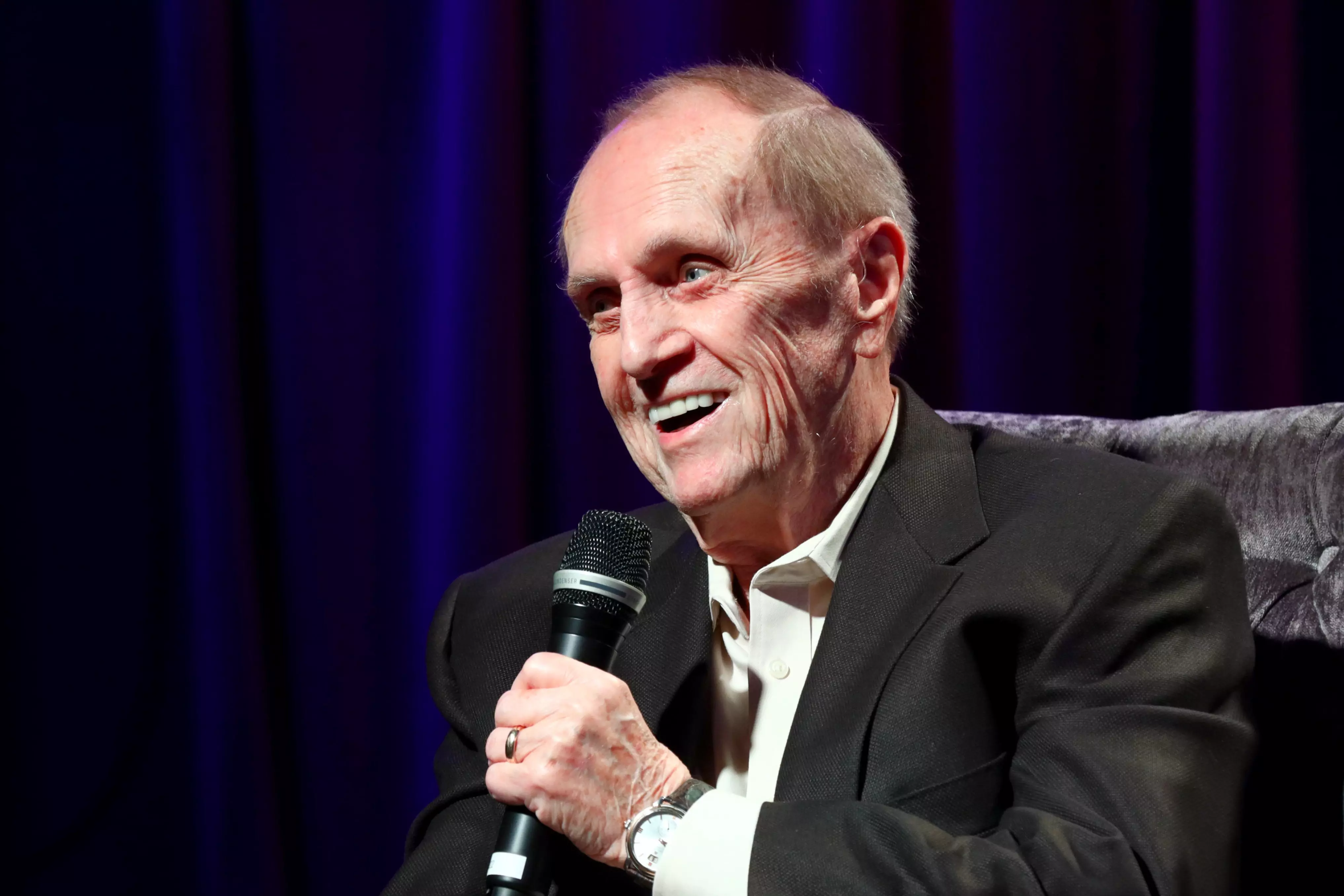
Remembering Bob Newhart, The Comic Who Made GRAMMY History With His Debut Album

2024 GRAMMYs In Memoriam: Stevie Wonder, Lenny Kravitz & More Pay Tribute To Late Icons
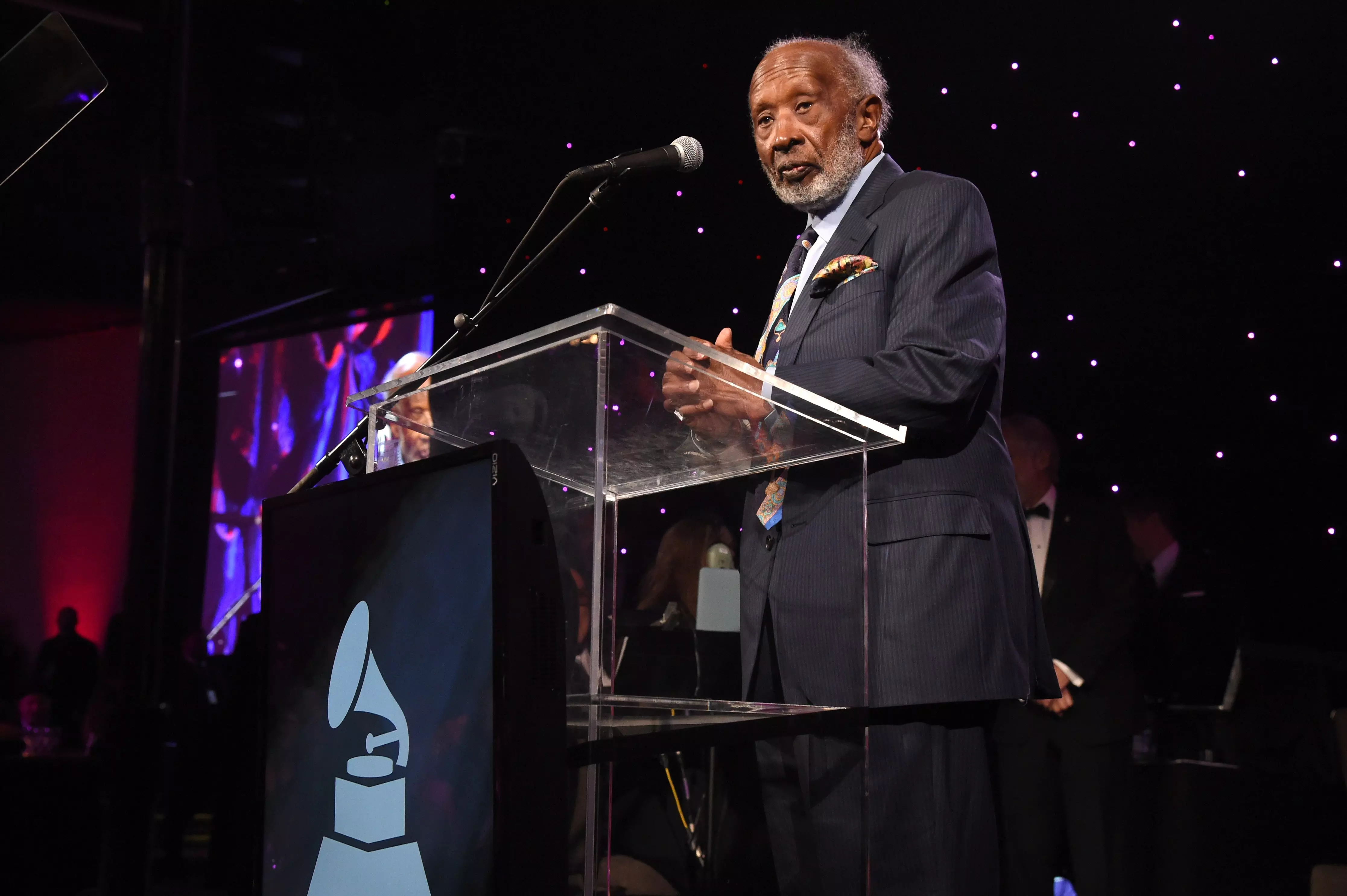
Remembering Clarence Avant: The Black Godfather, Renowned Entertainment Mentor & Recording Academy Honoree
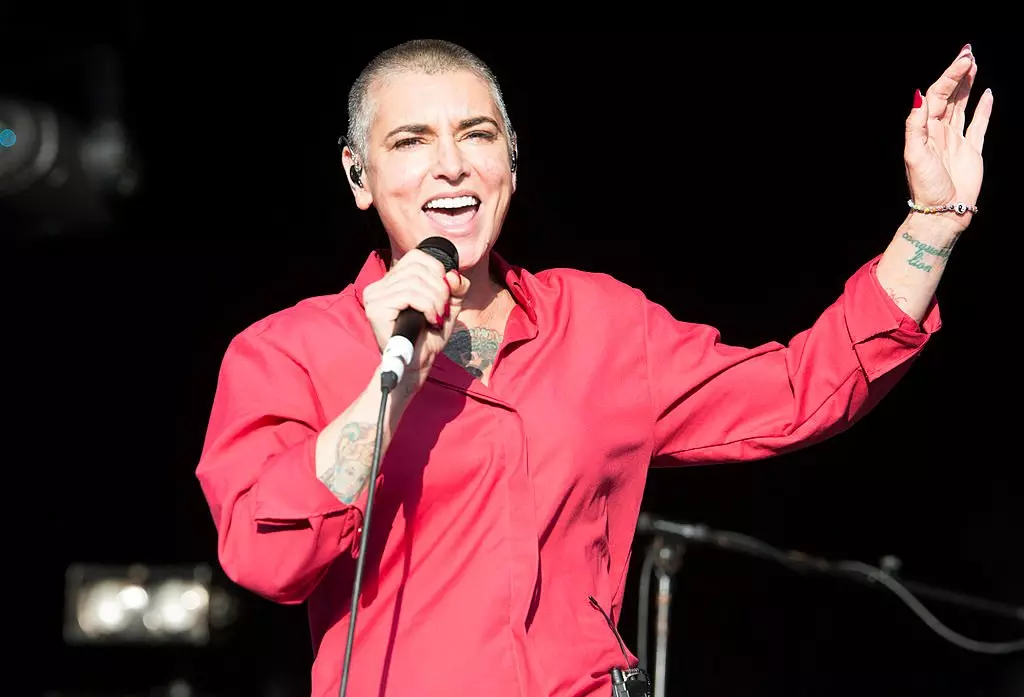
Remembering Sinéad O’Connor: 5 Essential Tracks By The Iconoclastic Singer/Songwriter
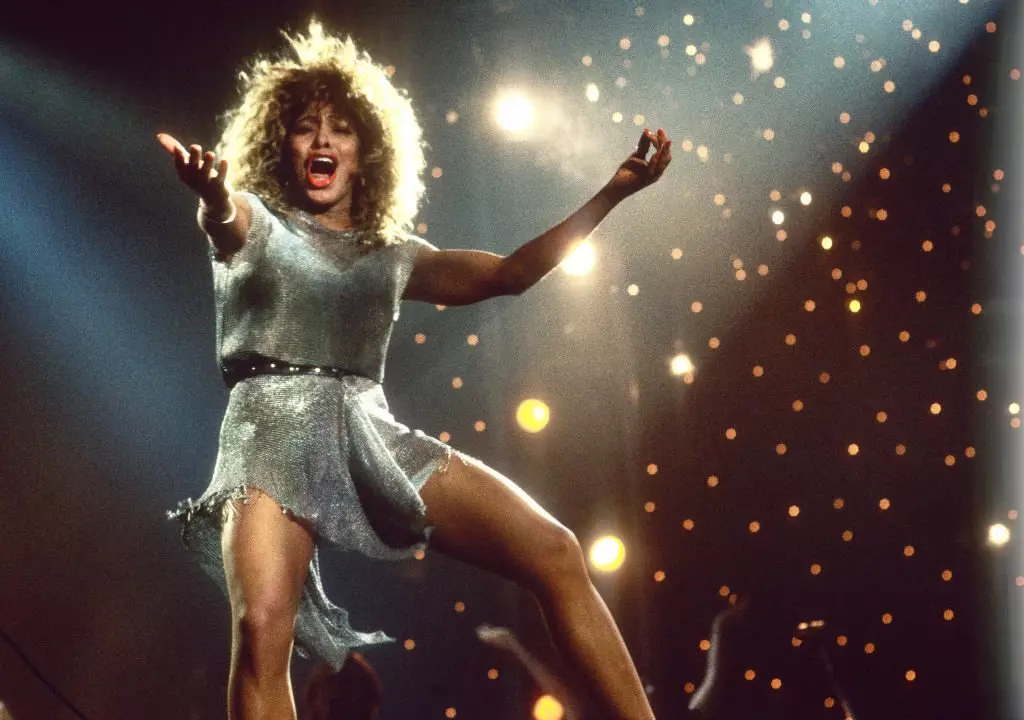
Remembering The Artistry Of Tina Turner, "The Epitome Of Power And Passion"
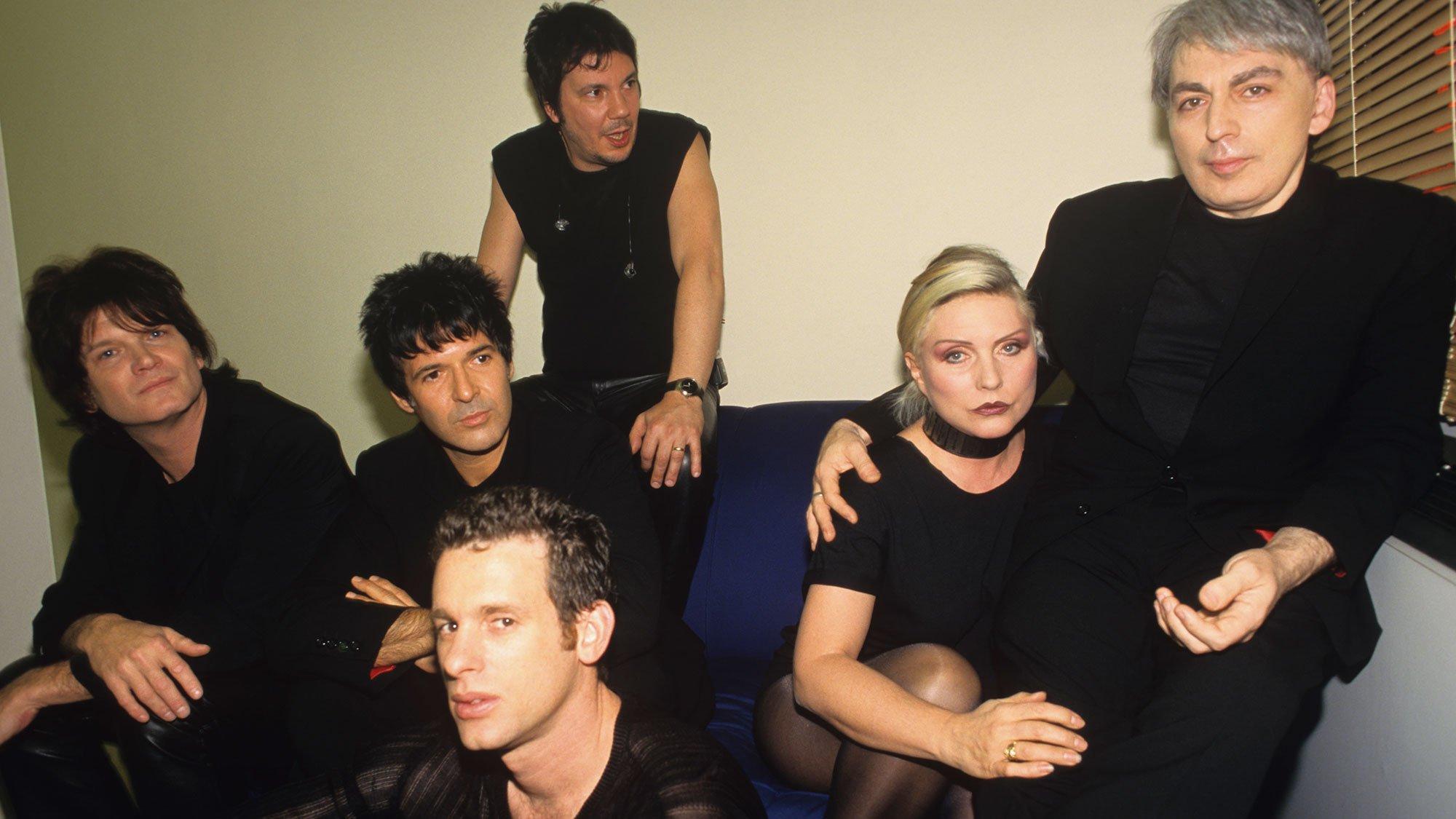
Photo: Patrick Ford/Redferns/GettyImages
feature
25 Years Later, 'No Exit' Shows Blondie Galvanizing Its Identity
Released in 1999 after a 15-year hiatus, Blondie's 'No Exit' was more than a reunion album. The edgy, eclectic and innovative album pulled Blondie back from the brink of history and into a new millennium.
"We felt there was no exit from Blondie," Clem Burke, long-standing drummer of Blondie, said in 1999.
Burke was speaking on the occasion of Blondie's new record, aptly titled No Exit. At the time, the band had reunited after a 15-year absence and, according to Burke, "reared its head again, a four-headed monster."
Although Burke jested about being unable to shake the pull of the band, No Exit was an edgy, eclectic and innovative record that pulled Blondie back from the brink of history and into a new millennium. The 17-track album saw the band restart their musical mission, delivering genre-blending punk music that brought experimental sounds to the mainstream while also parodying Americana. The reckless abandon shown with No Exit — from music genres to public image — proved a direct through-line to their peak new wave output.
No Exit was certainly a long time coming. The idea of a "reunion" for the famed band was never in the cards; even the idea of a greatest hits record was a no-go.After the release of 1982’s The Hunter — an album that fared poorly with critics and achieved little impact on the charts — the group chose to disband. Co-founder Chris Stein was diagnosed with an autoimmune disease and took time away from music; lead singer Debbie Harry began caring for partner Stein while also pursuing a solo music career and acting opportunities (including John Waters’ Hairspray); Burke went on to play drums for the likes of the Romantics and Iggy Pop; keyboardist Jimmy Destri began producing music for Prince and INXS.
A true reunion had to involve new music and a relaunch too. Stein recalled watching Jerry Maguire for the first time while recording No Exit in 1998. "I got all teary-eyed because the movie’s all about getting a second chance," he told the L.A. Times. "And that’s what this is about, you know? We’re getting a second chance."
Released on Feb. 23, 1999, No Exit was an energetic and eclectic mix of classic Blondie genres — pop and rock, reggae and rap — that pitched the band to a generation. No Exit eased the band back into a musical landscape dominated by rhythmic hip-hop tracks, velvet R&B anthems and thumping heavy metal.
Audiences at the dawn of the new millennium were already enjoying the success of other girl-fronted rock ensembles; groups like No Doubt, Garbage, and the Cranberries owed Blondie and Harry some credit for trailblazing. (Even if being a female-fronted band became a thorn in Blondie’s side, as seen by their 1978 "campaign" to correct the record with "Blondie is a group!" buttons.)
Now returning to the charts with such peers, Blondie signaled to the world their assignment was never over — even aging rockers could challenge music conventions and be punk again. Harry was center stage once more, reviving the band’s famed part-parody and part-femme fatale blond bombshell image for a new audience (and Blondie diehards).
Lead track "Maria" — a spirited song about romantic desire that also plays on religious idol worship — wasn’t quite classic Blondie but a sweet pop treat The song
hit No. 1 on the U.K. charts and also topped charts in Spain and Poland. Blondie were officially back in action, but their status left Stein a bit uneasy. "Now we were on the receiving end of a lot of accolades. At times it felt odd being hit with all the ‘legendary’ labels," Stein writes in his upcoming memoir, Under a Rock.
But it was no small feat to get Blondie back together. When they disbanded in 1982, they acknowledged that it was a "madhouse," with endless fighting and arguments all while Stein began to deteriorate from his chronic illness. While the band had sold more than 40 million albums in their decade-plus together and cemented themselves in the cultural lexicon, a new question emerged: Would their formerly edgy and eclectic sound resonate again?
Part of the band’s advantage in 1999 was also their original musical hallmark: a lack of a loyalty to any singular genre.
No Exit embraced Blondie’s classic musical eclecticism — a quality that saw some critics deride the record. An "album of hollow new-wave, ska, and rap retreads," Entertainment Weekly opined while Rolling Stone argued it "indulge[d] in the kind of dilettantish genre dabbling that preceded their 1982 demise." But Blondie’s uniqueness was always that their music output resisted easy classification; it wouldn’t be Blondie without any genre experimentation.
While looking back was important for the band when recording No Exit, it was also key to finding ways to appeal to a new generation of listeners. "We’re part of the future as well as the past," Harry said in 1999. "One of the stipulations I had was that it not be just a revue of Blondie’s greatest hits. I really felt convinced of and dedicated to the idea that we had to move ahead and do new music." That also extended to playfully redoing tracks they had originally recorded in the 1970s, including the Sangri-Las’ "Out in the Street."
Other songs on No Exit showed a playful and wry tenor, as the four original members were seemingly having fun reconnecting with each other. "Forgive and Forget (Pull Down the Night)" is a smooth and synthy dance track that recalls the Pet Shop Boys and gestures at forgiving past transgressions. Blondie cosplays as a country ensemble on "The Dream’s Lost on Me" with a structured and rhythmic country ballad that elevates Harry’s vocals. "Screaming Skin" takes their past reggae influences and recasts them in a rapid-fire rock song about breaking the betrayal of one’s body (likely a reference to Stein’s pemphigus condition attacking his skin).
Touring No Exit also fermented worries about Blondie’s legacy. "I don’t wanna appear preposterous on stage," Harry said at the time. In an attempt to defy such expectations, Blondie chose to perform the album’s hip-hop influenced title track during the American Music Awards, even bringing Coolio onstage.
The performance was true Blondie, which had long collaborated with artists of other genres to appeal to new audiences (their "Rapture" featuring Fab Five Freddy being case in point). "I was pleased with the mixed reaction," Stein said after the AMAs. "I’d much rather have us do something controversial than safe."
Today, "No Exit" might sound like a jarring marriage between classical music — with its use of Bach’s "Toccata and Fugue in D minor" — and thumping modern rap, but it isn’t a serious sonic exercise. Blondie instead impishly reminds us of the endless loop ("no exit") of their past music and the music industry, as their famed tunes might as well be as dated as those of the baroque era. The band goes philosophical with the reboot — even nodding to Jean-Paul Sartre’s bleak existential play No Exit — but conversely finds freedom adopting this adage.
The 1999 regrouping netted Blondie chart success, new fandom, and a world tour. Yet it also brought up some personal problems. In Under a Rock, Stein admitted he was trying to gradually decrease his use of methadone, but touring demands made recovery difficult.
Still, Blondie’s return helped galvanize their popular image as enduring punk and new wave pioneers. (It might not be surprising that no Blondie album since has charted as high as No Exit at No. 18 in the U.S. and No. 3 in the U.K.) The band hasn’t pumped the brakes either, riding the renewed popularity for decades since with new music and tours of the world over.
But No Exit offered audiences something that their four following albums haven't achieved: a cutting and experimental sound that also acknowledged the artifice of the pop rock music they were making. Even recent successes like 2017’s Pollinator sounded fun and youthful, but were a largely series of songs written or co-written by other artists that aimed to appease current pop music tastes.
The album title might sound suffocating or even nihilistic, but to Blondie No Exit was a belated self-acceptance. "I mean, there is no exit," Harry commented to journalist Michael Hill in 2013. "You work so hard to establish something, and then that’s it, there you are."
Twenty-five years on, Blondie showed a dawning new millennium who they were: A punk band who embraced sounds with abandon while celebrating the fantasy of being dissent rock stars. Like reading a sign "last exit before freeway," Blondie saw No Exit as a moment to hit the gas and drive straight on through.
'The Smiths' At 40: How The Self-Titled Debut Fired An Opening Shot For Indie Rock

Photo: JC Olivera/WireImage
news
2024 GRAMMYs In Memoriam: Stevie Wonder, Lenny Kravitz & More Pay Tribute To Late Icons
A star-studded tribute honored the late leading lights of the music industry. In a heartfelt and exciting segment, Tina Turner was remembered with a spirited cover of "Proud Mary" and while Stevie Wonder did a tender posthumous duet with Tony Bennett.
Oprah Winfrey, Stevie Wonder and more graced the GRAMMYs stage for a star-studded tribute to Tina Turner, Tony Bennett and other stars we lost in 2023.
The In Memoriam segment of the 2024 GRAMMYs began with Wonder honoring the "I Left My Heart in San Francisco" crooner, who passed away in July after a long battle with Alzheimer's. With Wonder on piano and an ethereal, archival video of Bennett singing, the two created a tearjerker posthumous duet of "For Once in My Life" before transitioning into "The Best is Yet to Come."
Next, a video memorialized Jimmy Buffett before a visibly emotional Annie Lennox appeared on stage with Wendy and Lisa to remember Sinead O'Connor with a tender cover of the late Irish alt pioneer's classic single "Nothing Compares 2 U." "Artists for ceasefire! Peace in the world!" the Eurythmics icon shouted with raised fist at the end of her performance.
Elsewhere during the In Memoriam package, Burt Bacharach was celebrated for his unmistakable impact on popular music throughout the 20th century. Then, Lenny Kravitz paid respect to Clarence Avant as the "Godfather of Black Music" with a tribute that included a performance of "Ain't No Sunshine" and "Lean on Me" by Jon Batiste. Ann Nesby, Jimmy Jam, Terry Lewis and others joined later to perform "Optimistic."
Read more: Remembering The Artistry Of Tina Turner, "The Epitome Of Power And Passion"
Last but certainly not least, Oprah Winfrey ushered in a tribute to Turner, saying "Tina Turner was always a towering figure. She is our forever goddess of rock and roll who inspired millions, a moving symbol of grace and grit, soul and power…And as those big wheels of time keep on turnin’, Tina’s voice continues to speak to all of us."
Following her remarks lionizing the Queen of Rock 'n Roll and nine-time GRAMMY winner, Oprah ceded the stage to Fantasia Barrino for a transcendent, celebratory performance (with much dancing, as Turner would have wanted) of "Proud Mary" that went from the stage to the audience and back.
2024 GRAMMY Nominations: See The Full Winners & Nominees List

Photo: Jeff Kravitz/FilmMagic
video
GRAMMY Rewind: Kendrick Lamar Honors Hip-Hop's Greats While Accepting Best Rap Album GRAMMY For 'To Pimp a Butterfly' In 2016
Upon winning the GRAMMY for Best Rap Album for 'To Pimp a Butterfly,' Kendrick Lamar thanked those that helped him get to the stage, and the artists that blazed the trail for him.
Updated Friday Oct. 13, 2023 to include info about Kendrick Lamar's most recent GRAMMY wins, as of the 2023 GRAMMYs.
A GRAMMY veteran these days, Kendrick Lamar has won 17 GRAMMYs and has received 47 GRAMMY nominations overall. A sizable chunk of his trophies came from the 58th annual GRAMMY Awards in 2016, when he walked away with five — including his first-ever win in the Best Rap Album category.
This installment of GRAMMY Rewind turns back the clock to 2016, revisiting Lamar's acceptance speech upon winning Best Rap Album for To Pimp A Butterfly. Though Lamar was alone on stage, he made it clear that he wouldn't be at the top of his game without the help of a broad support system.
"First off, all glory to God, that's for sure," he said, kicking off a speech that went on to thank his parents, who he described as his "those who gave me the responsibility of knowing, of accepting the good with the bad."
Looking for more GRAMMYs news? The 2024 GRAMMY nominations are here!
He also extended his love and gratitude to his fiancée, Whitney Alford, and shouted out his Top Dawg Entertainment labelmates. Lamar specifically praised Top Dawg's CEO, Anthony Tiffith, for finding and developing raw talent that might not otherwise get the chance to pursue their musical dreams.
"We'd never forget that: Taking these kids out of the projects, out of Compton, and putting them right here on this stage, to be the best that they can be," Lamar — a Compton native himself — continued, leading into an impassioned conclusion spotlighting some of the cornerstone rap albums that came before To Pimp a Butterfly.
"Hip-hop. Ice Cube. This is for hip-hop," he said. "This is for Snoop Dogg, Doggystyle. This is for Illmatic, this is for Nas. We will live forever. Believe that."
To Pimp a Butterfly singles "Alright" and "These Walls" earned Lamar three more GRAMMYs that night, the former winning Best Rap Performance and Best Rap Song and the latter taking Best Rap/Sung Collaboration (the song features Bilal, Anna Wise and Thundercat). He also won Best Music Video for the remix of Taylor Swift's "Bad Blood."
Lamar has since won Best Rap Album two more times, taking home the golden gramophone in 2018 for his blockbuster LP DAMN., and in 2023 for his bold fifth album, Mr. Morale & the Big Steppers.
Watch Lamar's full acceptance speech above, and check back at GRAMMY.com every Friday for more GRAMMY Rewind episodes.
10 Essential Facts To Know About GRAMMY-Winning Rapper J. Cole
